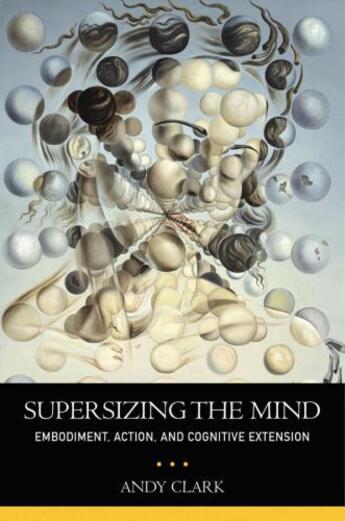-
Nombre de pages : (-)
-
Collection :
(-)
-
Genre :
(-)
-
Thème :
Non attribué
-
Prix littéraire(s) :
(-)
Résumé:
When historian Charles Weiner found pages of Nobel Prize-winning physicist Richard Feynman's notes, he saw it as a "record" of Feynman's work. Feynman himself, however, insisted that the notes were not a record but the work itself. In Supersizing the Mind , Andy Clark argues that our thinking... Voir plus
When historian Charles Weiner found pages of Nobel Prize-winning physicist Richard Feynman's notes, he saw it as a "record" of Feynman's work. Feynman himself, however, insisted that the notes were not a record but the work itself. In Supersizing the Mind , Andy Clark argues that our thinking doesn't happen only in our heads but that "certain forms of human cognizing include inextricable tangles of feedback, feed-forward and feed-around loops: loops that promiscuously criss-cross the boundaries of brain, body and world." The pen and paper of Feynman's thought are just such feedback loops, physical machinery that shape the flow of thought and enlarge the boundaries of mind. Drawing upon recent work in psychology, linguistics, neuroscience, artificial intelligence, robotics, human-computer systems, and beyond, Supersizing the Mind offers both a tour of the emerging cognitive landscape and a sustained argument in favor of a conception of mind that is extended rather than "brain-bound." The importance of this new perspective is profound. If our minds themselves can include aspects of our social and physical environments, then the kinds of social and physical environments we create can reconfigure our minds and our capacity for thought and reason.
Donner votre avis















